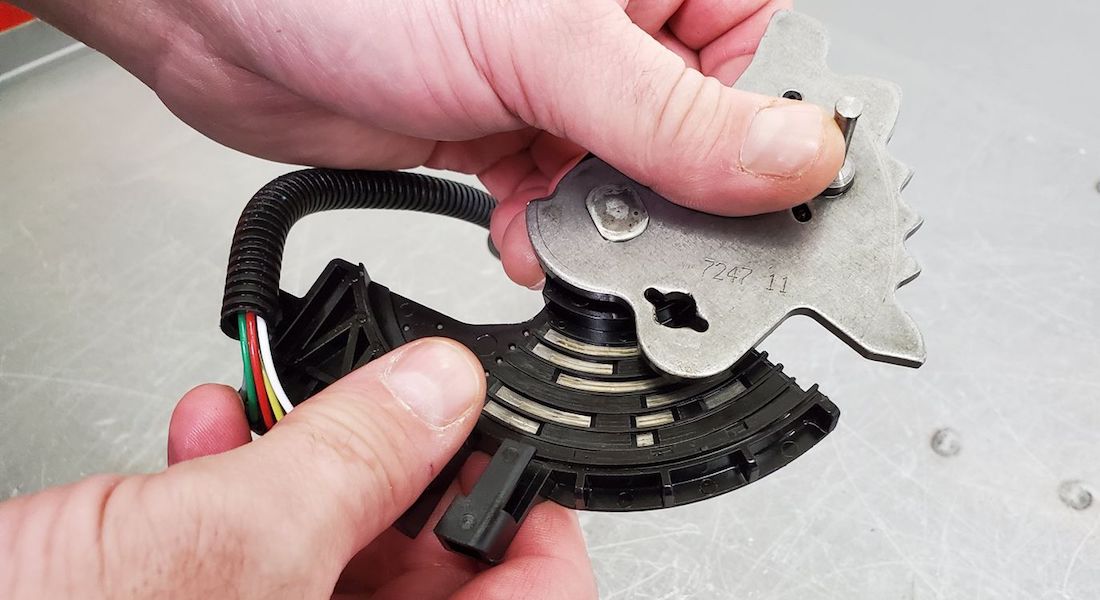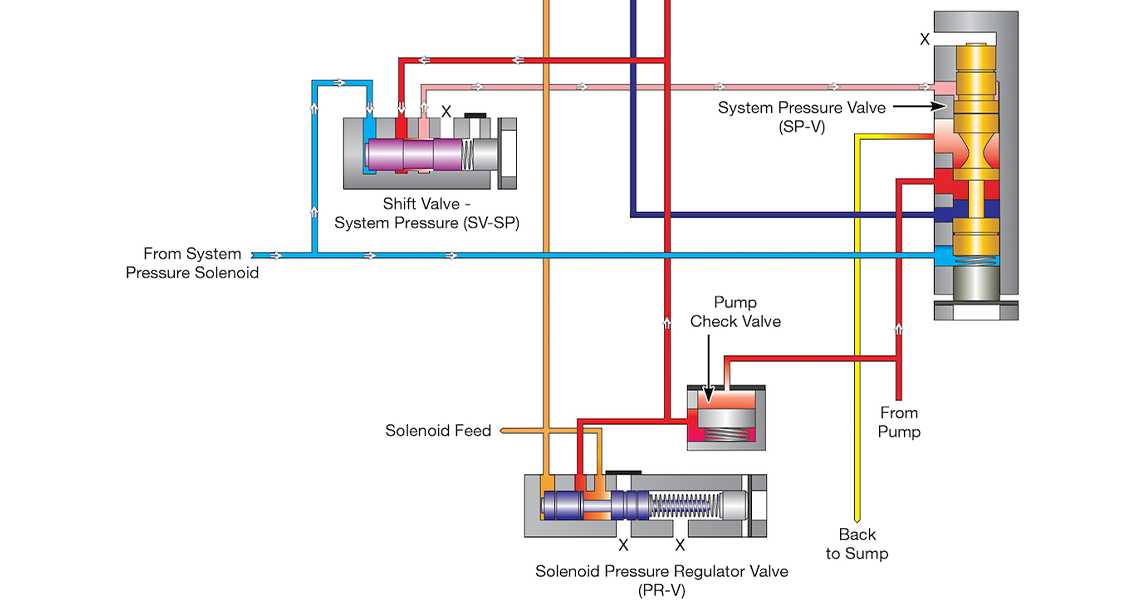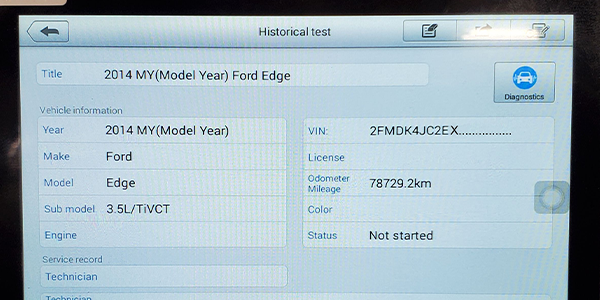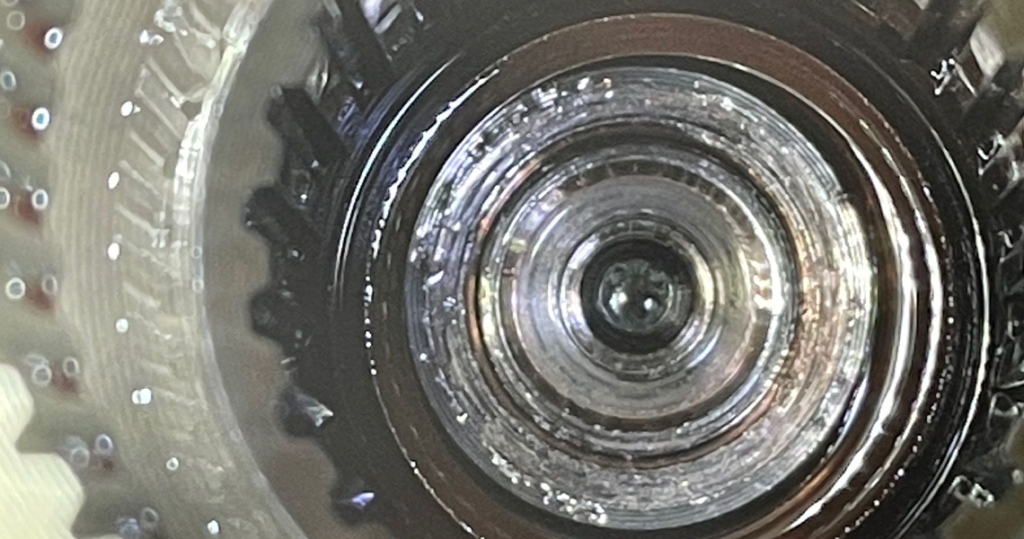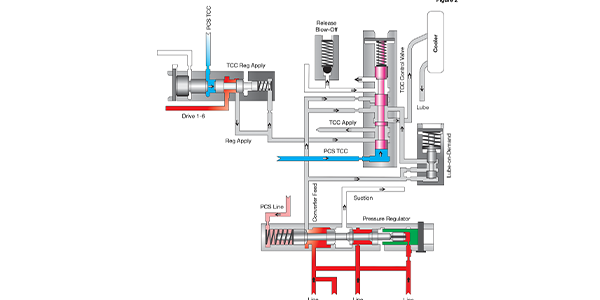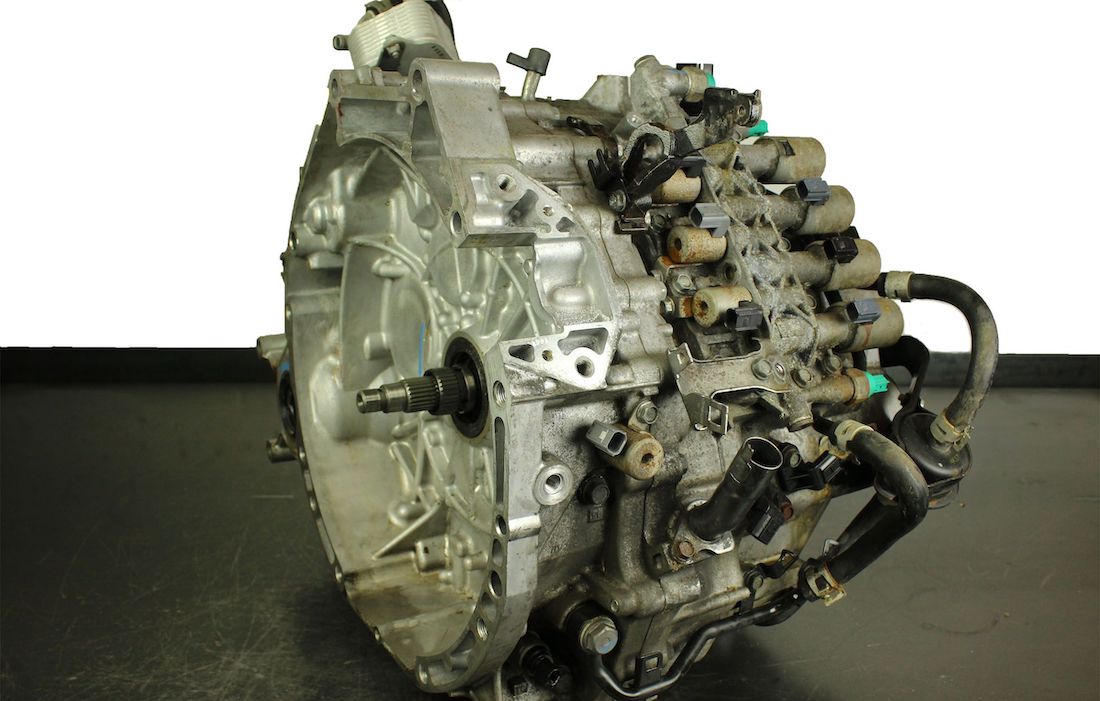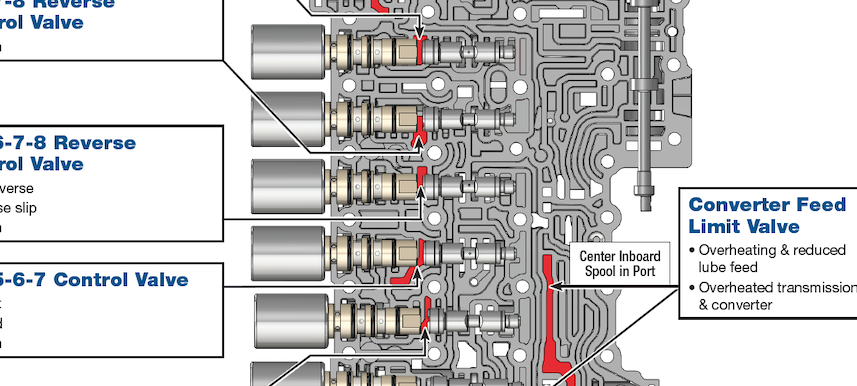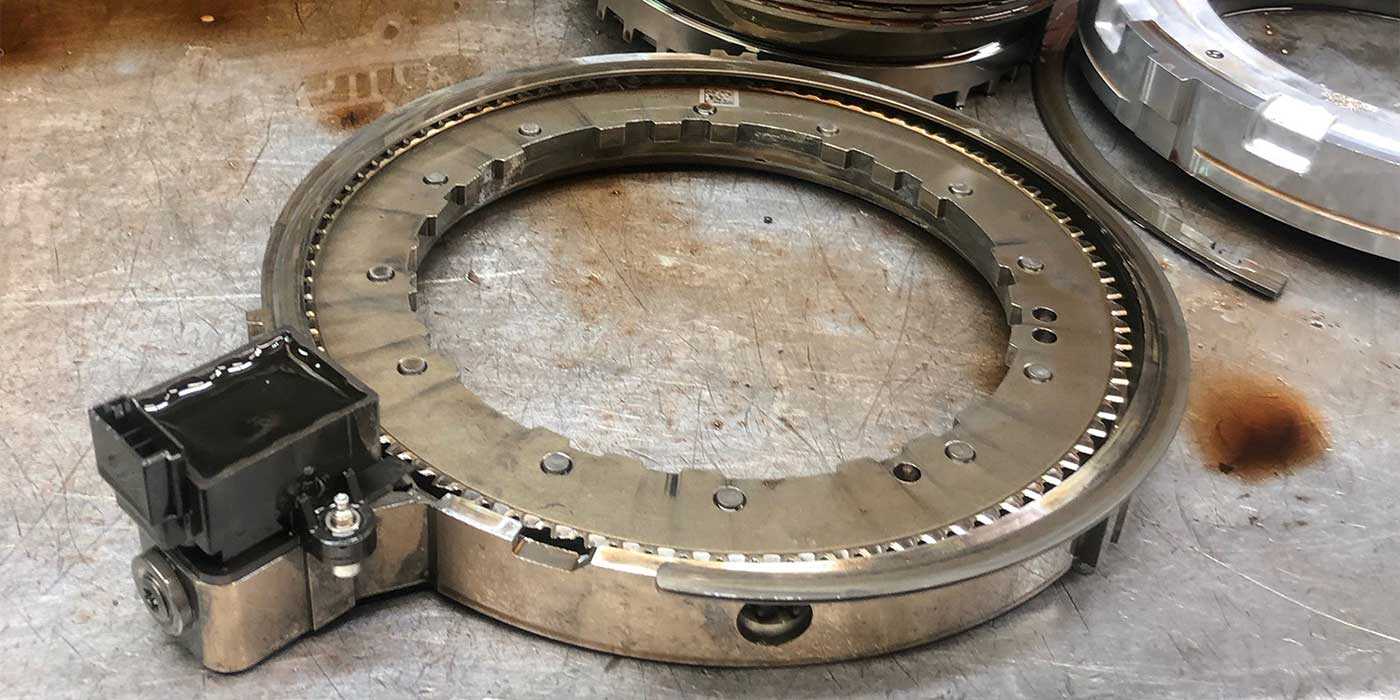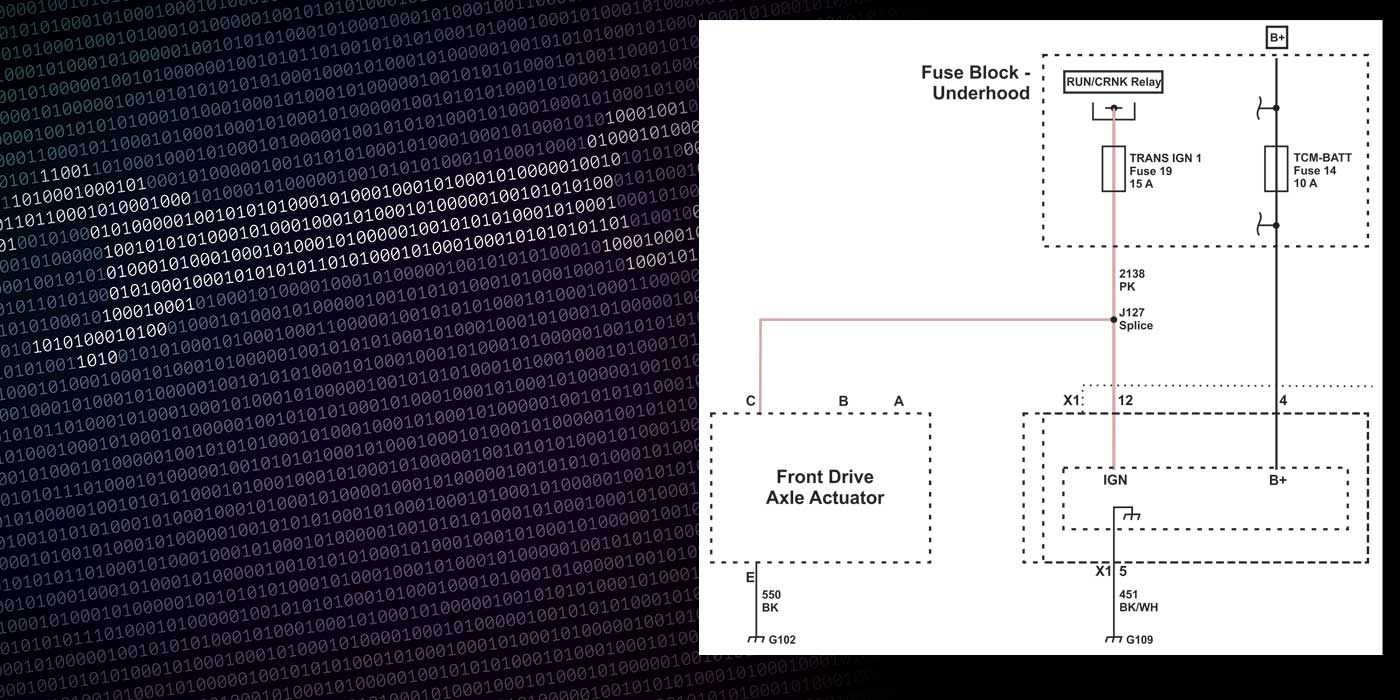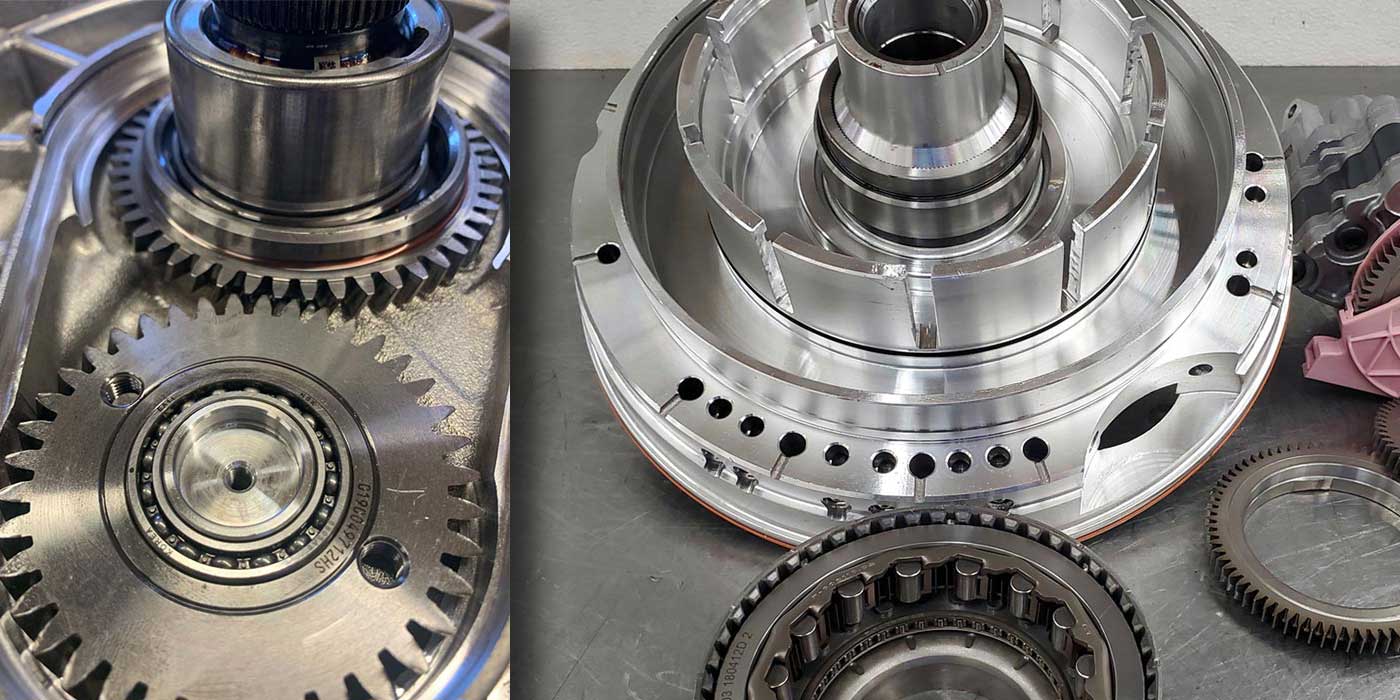
Technically Speaking
- Author: Wayne Colonna
- Subject Matter: FNR5/FS5A-EL
- Issue: Original vs. aftermarket gaskets
Technical Training
The phrase, “It’s the little things,” is often times pared with “that count” or “will get you.” Both are true when it comes to a loss of reverse after rebuilding a 4F27E. It is easy to overlook the little things that count and it will be the little thing that gets you.
Mazda uses a version of this transmission in some of its vehicles that they call the FN4A-EL transmission. There is a significant yet subtle difference in the height of the reverse piston when it is compared to the 4F27E.
Mazda’s FN4A-EL transmission uses a reverse piston that is 1.375” (34.925mm) tall while Ford’s 4F27E transmission use a reverse piston that measures 1.455” (36.957mm) in height (Figure 1).
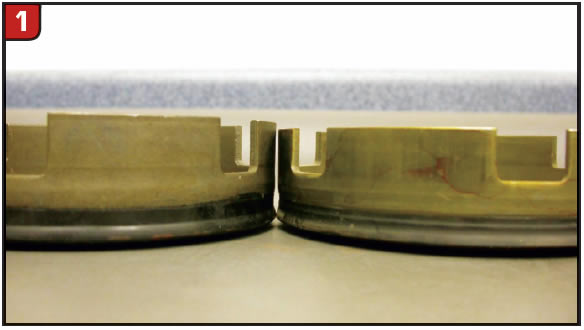
For obvious reasons, a no reverse after rebuilding a 4F27E can be caused by accidently using a reverse piston for an FN4A-EL transmission.
Interestingly enough, a no reverse can now occur with Mazda vehicles for the same reason. How might that be, you may ask? When it comes to the five-speed versions of this transmission (Ford’s FNR5 and Mazda’s FS5A-EL), both use the 1.455” (36.957mm) reverse piston. It is evident that using Mazda’s four-speed version in their five-speed transmissions will be the reason for a no reverse after rebuild.
It’s the small things that count and when missed, it will get you!
Additional service information
A) Reverse clutch steel plates come in .063” (1.60mm) or .082” (2.08mm) thicknesses.
B) The top pressure plate used by both the 4F27E/FN4A-EL and the FNR5/FS5A-EL is .226” (5.74 mm) thick
C) The reverse frictions used by both the 4F27E/FN4A-EL and the FNR5/FS4A-EL is .064” (1.63 mm) thick.
D) The Belleville Spring used by both the 4F27E/FN4A-EL and the FNR5/FS4A-EL is .055” (1.40 mm) thick and has 12 fingers.
E) Only the FNR5/FS5A-EL uses a .082” (2.08mm) thick dished plate at the bottom of the reverse clutch pack (Figure 2).
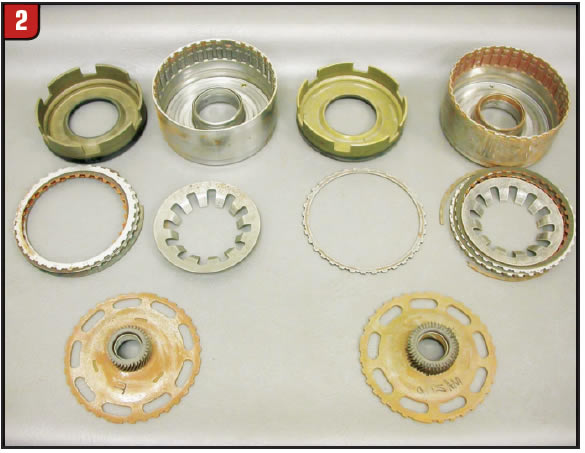
F) Reverse clutch clearance should be: .040”-.051” (1.0-1.3 mm)
G) The clutch pack retaining snap ring is used to set final clutch clearance. The selective snap rings that are available have the following dimensions:
- .045”-.049” (1.15 – 1.25 mm)
- .053”-.057” (1.35 – 1.45 mm)
- .061”-.065” (1.55 – 1.65 mm)
- .069”-.073” (1.75 – 1.85 mm)
- .077”-.081” (1.95 – 2.05 mm)
- .085”-.089” (2.15 – 2.25 mm)

Another transmission Ford uses is called the TF81SC. This transmission is also used Mazda and Land Rover. It too can develop a problem with reverse after overhaul. Unlike a no-reverse problem, a delay or slipping in reverse may be observed. A secondary complaint may be converter clutch chatter or engine rpm drop. Other complaints may also be harsh shifts and a bind-up sensation.
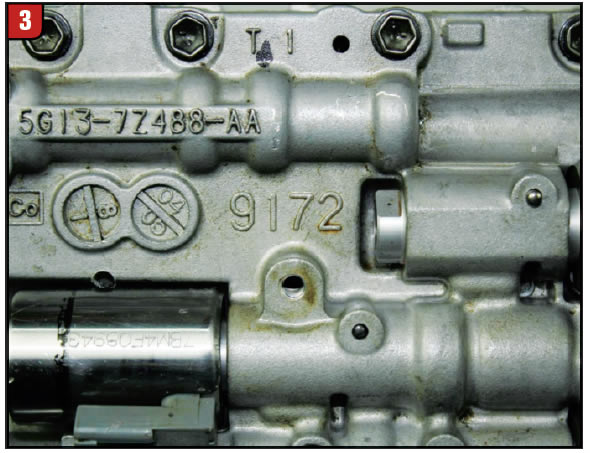
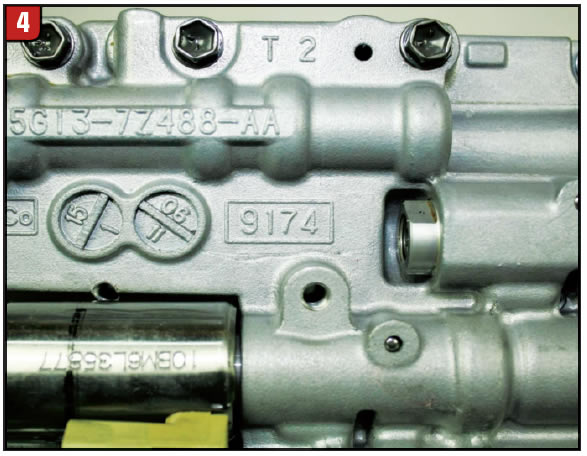
The cause can be traced back to using the wrong bonded spacer plate. There are two significant yet subtle differences between valve bodies that affect gasket/spacer plate design. First design valve body can be identified with a 9172 number casted into it while the second design has 9174 (figures 3 and 4). Figure 5 shows the subtle yet significant differences between the two.
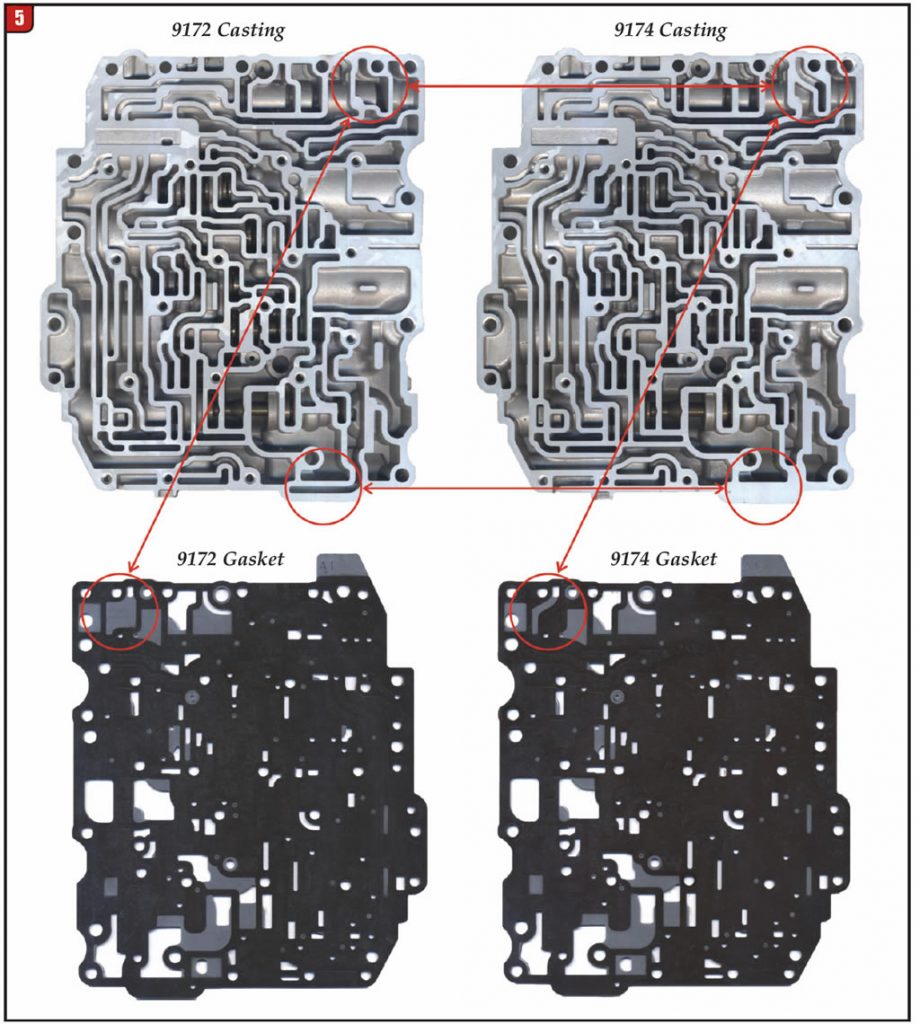
The complaint of a delayed or slipping reverse will occur when a 9172 style bonded plate is used on the 9174 valve body. Converter clutch chatter or engine rpm drop may also be observed as a result of this mismatch.
When this mismatch occurs, the wrong style gasket will allow circuit 2 to intrude into circuit 5 (figure 6). Circuit 2 is used to raise line pressure in reverse and to supply line pressure to the related valves in the valve body for a reverse engagement. Circuit 5 is the torque converter charge pressure (TCC In/Release) circuit. Delayed and/or slipping in reverse will be the initial observation made due to this incorrect gasket application.
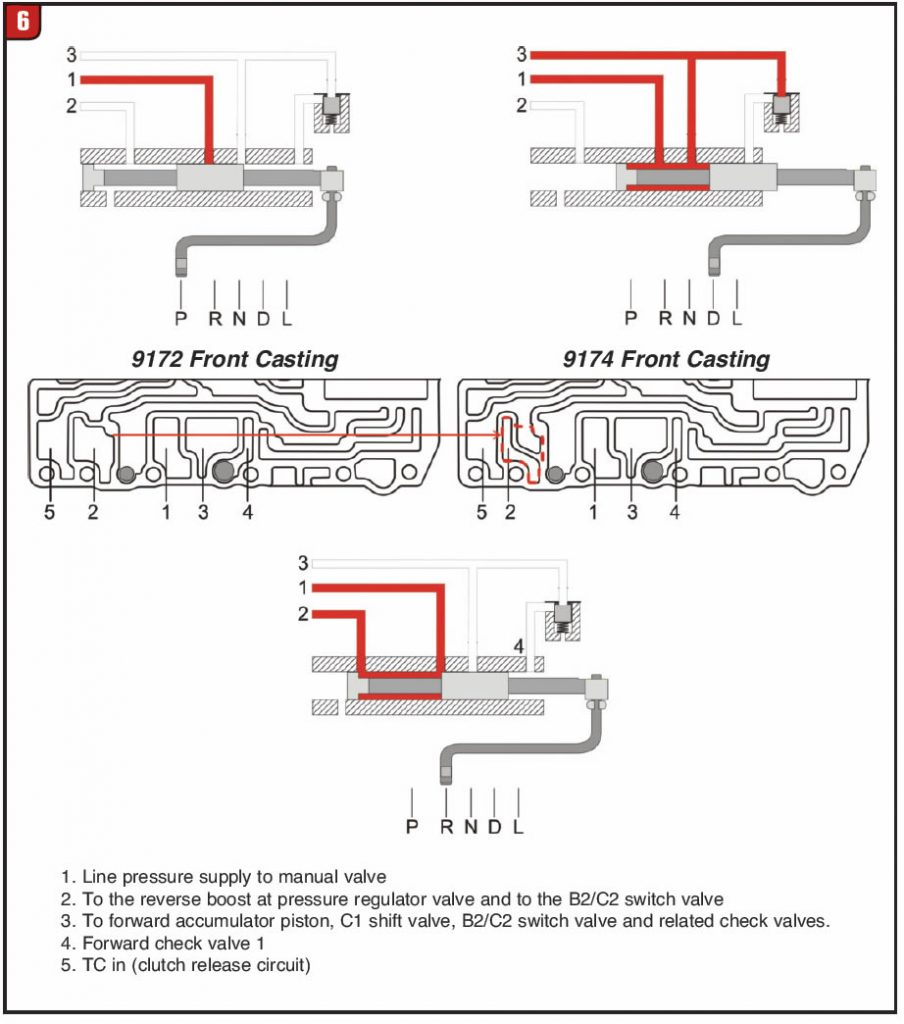
Installing the 9174 bonded plate on the 9172 valve body will produce no functional problems. However, if the original bonded gaskets are removed and replaced with aftermarket gaskets, due to a part of the gasket being unsupported, a piece can break off and become lodged in the reverse boost valve which could cause engagement problems.
It’s the little things that matter and if overlooked, it will get you!


